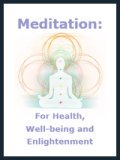Sleep and Hydration
We're not talking about wetting the bed!
But sleep and hydration beg the questions is how can water help you sleep better?
This large proportion of water is not only critical to the healthy function of the cells in our body but especially important for the cells in our brain. In order for our body to be in total balance, we need to make sure that it is properly hydrated. This will not only help us to feel better overall, it will help us to sleep and to sleep well.
Sleep and Hydration: Water everywhere BUT...
The easiest way for us to hydrate ourselves and to make sure that we are getting a good night sleep is to drink plenty of fresh, natural, clean water. This is not always so easy to do these days, especially if you are a city dweller. The best natural mountain spring waters are available for a price (and sadly often in plastic bottles!!), But tap water is really too polluted even after (or especially after) all the processing it goes through (no matter what our authorities try to tell us!)
A popular formula for making sure that your body is hydrated is to drink one half of your body weight in ounces of water on a daily basis. Before you faint at the suggestion, what this really means is half the 'number' of pounds in terms of 'fluid ounces' (not half your actual body weight!). So a 120 lb person would drink 60 fluid ounces a day -- or three pints of water.
Although, at first, this may seem a little bit of a challenge the reality is that if you can manage to steadily drink about half a pint every two hours or so it is easy to get into the routine of achieving! (Drinking faster will just send you to the toilet more often and before you absorb it it will have passed through!)
Sleep and Hydration: A Little Salt With That?
If you are drinking extra water, your body is going to need extra salt. Because you'll effectively be diluting the natural elctrolytes. So it is suggested that you take a small pinch of natural sea salt with every half pint glass. This amount should hardly be enough to be noticeable by taste, but it will do wonders for you.
If you think you may be retaining too much water (and some people do begin to feel a bit puffed up) then simply cut back on the amount of salt that you are taking. If you feel that your body is cramping, however, that is often a sign that you need a little additional salt in your diet. (But avoid using chemically bleached and processed table salts -- choose a good quality sea salt that features the natural trace minerals you need!)
Sleep and Hydration: How to Do It
The most common complaint about drinking extra water for insomnia is that you are going to be getting up more often during the night in order to go to the bathroom. Although this may be a problem initially, your body will actually adjust quite quickly and you will soon find you get up less frequently once your body is fully hydrated. Plus if you get your timings right you should have consumed your water portion with a couple of hours to spare before bed-time.
So why not try steadily building up your intake of water for one week, say incraesing the amount by half a pint a day, then stick at the required amount for another week. Not should you begin to feel an overall sense of well-being, clarity of thought and more vibrant health, you should also find that you are sleeping better every night.
More Ways to Overcome Insomnia:
Be sure to check out our additional insomnia tips in the other article featured. And if you are still battling those bedtime blues, then you will also benefit from some useful bedtime reading in the form of the book in which these insomnia cures are featured, alongside a whole host of other strategies and methods: that is Marv Zellig's recent publication "Natural Cures for Insomnia" about which you can read more here.
Sleep Better Resources:
Take a look at these resources relating to natural cures for insomnia and getting better sleep naturally:
Find out how you can get this valuable resource free (by clicking the image!):
See our additional insomnia cure and sleep problems articles, the links are at the top of this page.



